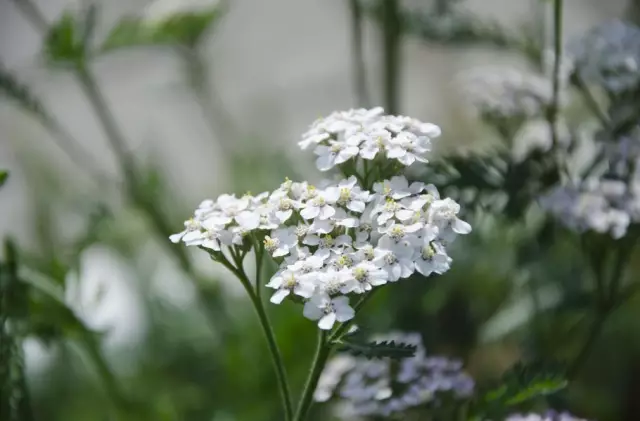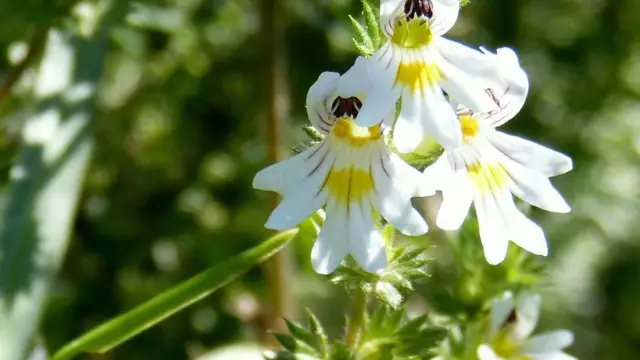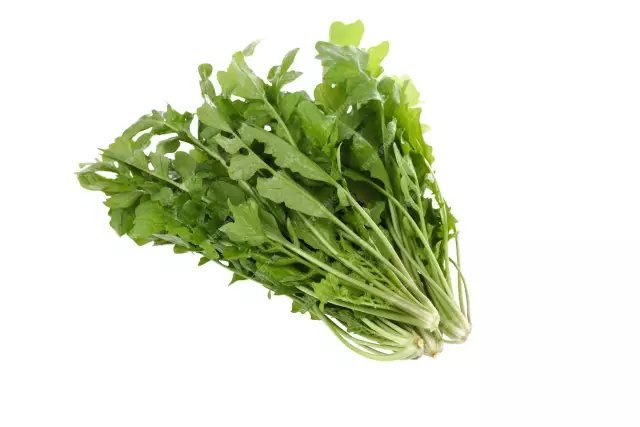- Author Rachel Wainwright [email protected].
- Public 2023-12-15 07:39.
- Last modified 2025-11-02 20:14.
Yarrow
Instructions for use:
- 1. Useful properties
- 2. Application in traditional medicine
- 3. Treatment recipes
- 4.contraindications for use
Prices in online pharmacies:
from 62 rub.
Buy

Yarrow is a perennial herb of the Asteraceae family; there are more than 150 species of this genus. The most common of them are: common yarrow, glabrous yarrow, bristly yarrow and Asian yarrow. The area of growth is wide: from North America to the Himalayas and New Zealand.
The healing properties of yarrow have been used since ancient times; in the literature it is described that even Achilles used this plant during the Trojan War as a wound-healing agent to treat his warriors. For medical purposes, yarrow is mainly used, less often Asian or bristly yarrow.
Useful properties of Yarrow
The medicinal properties of yarrow determine its widespread use in folk medicine, both for the treatment of diseases and for their prevention. The composition of this plant is unique, it contains tannins (tannins), phylloquinones (vitamin K), carotene (provitamin A), essential oil, alkaloids, flavonoids, vitamin C, amines, flavone glycosides, formic and acetic acids.
Tannins in the composition of yarrow have bactericidal, anti-inflammatory, astringent effects, can relieve irritation and tone the skin. It is used for excessive sweating, seborrhea, acne, as well as for cosmetic purposes with wide pores of the facial skin and to strengthen the hair follicles.
Vitamin K strengthens capillary walls, which leads to less bleeding and improved blood clotting. Also, vitamin K helps in the healing of wounds and trophic ulcers. Yarrow is used to treat wounds, burns and ulcers, as well as liver diseases, jaundice and certain blood disorders.
Carotene is contained in this plant in a sufficiently large amount, therefore, the use of yarrow is justified in case of signs of vitamin A deficiency in the body (brittle hair, dry skin and peeling, brittle nails, etc.).
The essential oil of this plant has a rich chemical composition, it includes camphor, cineole, borneol, achilles, caryophyllene and many other substances. Yarrow essential oils help fight skin and hair problems and have a positive effect on frostbite.
Despite its rich composition and many useful properties, yarrow is contraindicated for use by pregnant women, as well as in some other conditions. It is necessary to consult your doctor if you are going to use this plant for medicinal purposes.
The use of Yarrow in traditional medicine
Yarrow is used as a bactericidal, hemostatic, anti-inflammatory, astringent, it also improves bile secretion.
This herb is used to stop bleeding (eg, nose, uterine, dental, pulmonary, etc.). Yarrow helps with gynecological diseases, which are accompanied by profuse menstruation (fibroids, endometriosis), its hormone-like action allows you to normalize the menstrual cycle.
The astringent properties of yarrow help fight diseases of the digestive system (acute intestinal infections, colitis, enteritis, proctosigmoiditis). Since the composition of this plant contains resins, silicon and tannins, it is used to treat inflammatory skin diseases, as well as for injuries and burns of soft tissues.
Treatment with yarrow is justified in inflammatory processes of the urinary tract (cystitis, pyelonephritis), as well as in urolithiasis.
The infusion and liquid extract of this plant is used to improve appetite. Yarrow broth is used for liver diseases as a choleretic and anti-inflammatory agent.
In the treatment of viral respiratory infections, this plant helps with its diaphoretic and general stimulating action.
The use of yarrow is also justified for the treatment of cardiovascular diseases, its diuretic effect helps to normalize blood pressure, improve blood circulation and reduce edema. In addition, this plant also helps with disorders of venous circulation (chronic venous insufficiency with varicose veins), thrombophlebitis, hemorrhoids.
Yarrow treatment: recipes
Infusion of yarrow is indicated for decreased appetite, peptic ulcer disease, gastritis, diarrhea. It is made as follows: 1 tablespoon of dry crushed herbs is poured with 250 ml of boiling water and insisted for 1 hour, after wrapping it up. You need to take the infusion 1 tablespoon 3 times a day half an hour before meals. Also, the infusion of yarrow can be used in inflammatory processes of the urinary tract and liver diseases, for this it is prescribed 50 ml 4 times a day before meals. For bleeding (nasal, uterine, hemorrhoidal), the infusion is applied 120 ml 4 times a day before meals.
Yarrow juice has been used as a wound healing and hemostatic agent since ancient times. Also, the juice can be used for pulmonary and uterine bleeding, and as a lactogonic agent. For colds, yarrow juice can be instilled into the nose as a bactericidal agent.

In case of skin furunculosis, hair loss, seborrhea, treatment with yarrow helps with its anti-inflammatory, bactericidal and general stimulating effect. To do this, use its fresh juice together with olive oil (component ratio 1:10). For pustular skin diseases, the dressings are changed once a day.
With eczema, a strong decoction of yarrow helps, it must be applied topically for washing and compresses, as well as inside, 1 tablespoon three times a day.
For diseases of the colon, flatulence, the infusion of yarrow is used together with sage, mint and chamomile. All herbs are taken in equal proportions (1 tablespoon each) are poured with boiling water, infused until cool. This infusion should be taken ½ cup 4 times a day.
With phlebitis, thrombophlebitis, treatment with yarrow helps relieve inflammation, edema and improve venous circulation. This plant is used in a mixture with the leaves of lingonberry, birch, immortelle and buckthorn bark: 50 g of yarrow, 200 g of immortelle flowers, 100 g of the remaining components are poured with boiling water (1 glass), heated for 5 minutes and infused for another 4 hours. You need to take a decoction of 120 ml 3 times a day before meals.
Yarrow: contraindications for use
When treating with any herbs, you need to be aware of contraindications and possible side effects.
Since this plant has a hemostatic effect, yarrow is contraindicated in case of increased blood clotting, during pregnancy at any time, and it should not be used by people with low blood pressure. Long-term treatment with yarrow may cause dizziness, headache, rash and nausea.
Yarrow: prices in online pharmacies
|
Drug name Price Pharmacy |
|
Yarrow herbal tea 50 g 1 pc. RUB 62 Buy |
|
Our Mom Complex of herbal extracts Chamomile series Yarrow bath liquid 500 ml 1 pc. 149 r Buy |
|
Our Mom Complex of herbal extracts Chamomile succession yarrow bath liquid 1000 ml 1 pc. 295 RUB Buy |
Information about the drug is generalized, provided for informational purposes only and does not replace the official instructions. Self-medication is hazardous to health!






